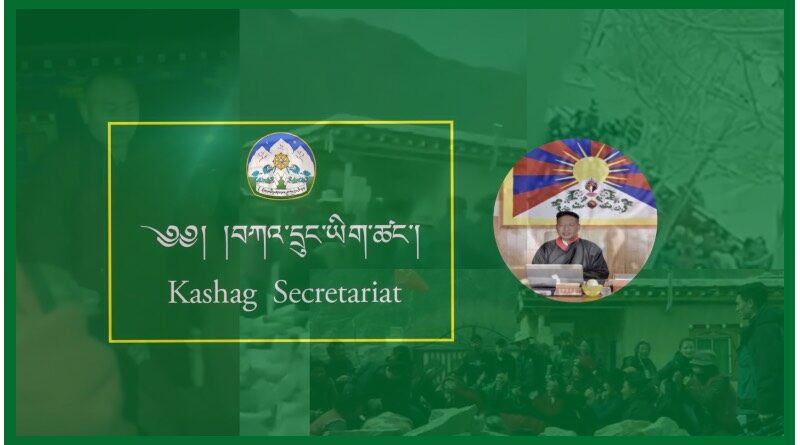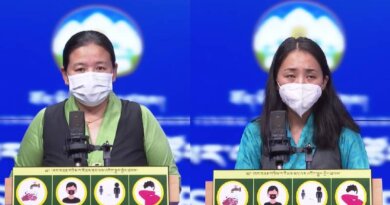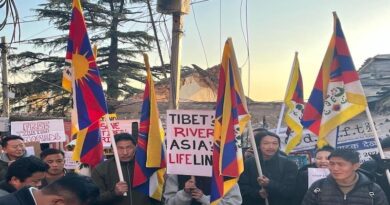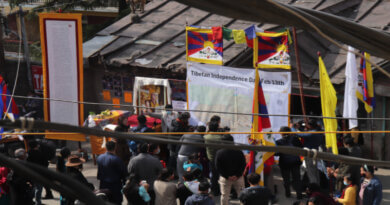Drichu Dam Protest: CTA President Condemns Chinese Crackdown on Tibetan Protesters, Urges Immediate Release of Detained Tibetans
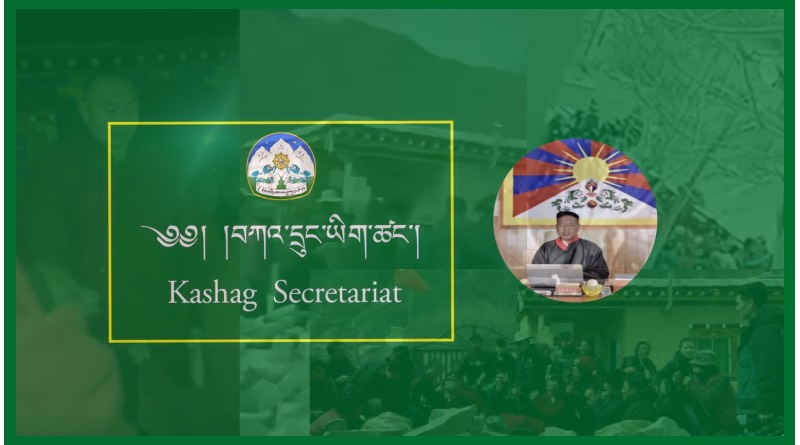
By Tsering Choephel
DHARAMSALA, 8 March: The President of the Tibetan government in exile, commonly referred to as the Central Tibetan Administration (CTA), Penpa Tsering, condemned the brutal crackdown by Chinese authorities on peaceful Tibetan protesters in Derge. He called for the immediate release of all Tibetans currently held under arrest, tibet.net, the official website of the CTA reported on Thursday.
“The crackdown on non-violent protests in Derge, as well as the disregard for Tibetans’ fundamental rights by the Chinese authorities, is unacceptable on all levels. These punitive measures demonstrate China’s preference for its communist ideology and economic interests over ensuring and upholding the fundamental human rights of Tibetans,” the president said.
He added, “We urge the PRC government to immediately release all Tibetans detained in Derge protests and to respect the rights and aspirations of Tibetans. There is an urgent need for the world to hear the Tibetan voices and to confront the reality of Chinese misrule in Tibet.”
The report also states that the CTA has communicated with all foreign ministries, UN bodies, and other relevant offices for their immediate attention and action.
The CTA has appealed and urged relevant ministries and international organisations to advocate for the release of hundreds of detained Tibetans who peacefully protested against the proposed construction of a hydroelectric power plant that threatens to displace Tibetan households from their ancestral lands and destroy culturally and religiously significant institutions, including wall murals dating back to the 14th and 15th centuries.
On 14 February, following the Chinese authority’s announcement calling for the relocation of two villages, Wonpotoe and Jomda in Derge of Tibet’s traditional province of Kham as well as several monasteries, in order to clear the land for the construction of the Kamtok dam in the area, hundreds of locals gathered to protest peacefully, many kneeling and crying in front of the Chinese authorities in appeal.
A week later, on 20-21 February, local officials, along with large security forces, arrived at the two monasteries, Wontoe and Yena, for inspection to prepare for the demolition. Desperate Tibetans gathered at the spot to again appeal to the Chinese authorities to halt the project. However, instead of listening to the local residents’ voice with complete disregard for their rights, the security forces dealt with peaceful Tibetan protesters with force and violence, injuring many and reportedly arresting several hundred in the following days.
The Dri Chu, known as Jinsha or the upper Yangtze River in Chinese, is the most heavily dammed river system in Tibet under Chinese rule. The construction of the Kamtok Dam lies at the upper reaches of the Drichu. The dam is the 6th of 13 dam projects on this river. This dam project, once carried forward, will lead to the complete submergence of two villages and at least six monasteries, namely Yena, Wontoe, Khadho, Rabten, Gonsar, and Tashi Monastery.
Moreover, in addition to the destruction of Tibetan villages and monasteries as well as the disruption of the local ecosystem from the construction of these damming projects, the generation of a massive 1.1 million kilowatts of electricity is reported to be aimed at the benefits of Chinese cities.
Despite the highly restricted and reported shutdown of internet access in the area, several videos of the protest as well as audios of this plight and fight Tibetans are undergoing under the colonial rule of the Chinese leaked outside Tibet.
Tibetans in exile and Tibet supporters across the free world since then have begun protesting and calling for international support and pressure against China’s abuse of Tibetan land, livelihood, and rights to express their discord.
Human Rights Watch, a global rights watchdog, on 28 February, called China’s dealing with the Tibetan protesters ‘brutal’ and asked for the immediate release of those arrested Tibetans, which includes both lay and ordained Tibetans.
Uzra Zeya, the US Special Coordinator for Tibetan Issues, also expressed deep concern on 25 February, urging China to respect human rights and freedom of expression, and to involve Tibetans in policy decisions, highlighting the cultural significance of the affected monasteries.
In the CTA’s statement, it also mentioned that Beijing ‘as a signatory to multiple international covenants and treaties, the PRC government must respect the rights and aspirations of the Tibetan people.’

